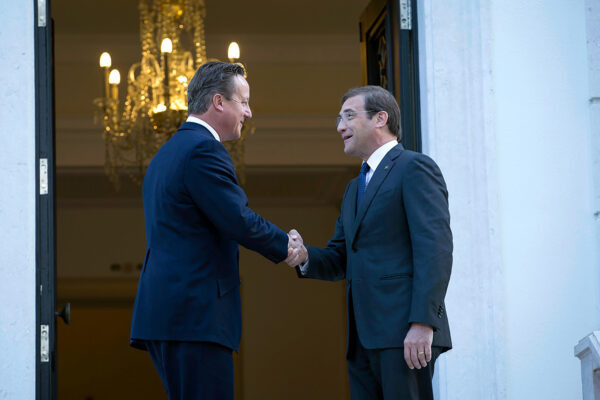
With Prime Minister David Cameron’s Conservatives expected to once again fall short of a parliamentary majority in the election this week, this website is hoping the Liberal Democrats will scrape together enough seats to keep the two parties in power. The last five years of coalition government have been stable and successful. The alternative, a Labour government held to ransom by Scottish separatists, would be anything but.
Success of austerity
When Cameron formed a government with the liberal Nick Clegg in 2010, Labour had left the world’s fifth largest economy in a terrible state. Britain was only just emerging from a recession that Labour didn’t cause but didn’t stop either. It borrowed £149 billion that year, equivalent to 11 percent of economic output, and allowed the debt to rise from around 50 percent of GDP to almost 80 percent of GDP.
The socialists tried textbook Keynesianism to stimulate the economy and failed. The coalition reined in deficit spending without curtailing the Bank of England’s monetary stimulus and succeeded in reducing the shortfall by half and bringing down unemployment to below half the European average. More Britons are now in work since counting began in 1971.
Whatever figures you look at, they confirm the coalition has done well. Growth is up, the price of food and fuel is down. Inflation is basically zero. Mortgage rates are at record lows. Households’ disposable income is at a six-year high.
It’s worth remembering that in the early years of Cameron’s government, Labour said his austerity program would devastate public services and depress growth. When those predictions didn’t bear out, the party argued there was a “cost of living” crisis in the United Kingdom because — by his own admission — the prime minster was prioritizing job creation over wage growth. (A wise decision: Better to have more people in work than a smaller workforce subsidizing an army of unemployed.) Now salaries are finally catching up with the improving economy, Labour is trying to convince voters it would actually do a better job at austerity. This is hard to believe, given how wrong it’s consistently been.
Less tangible achievements
Government is about more than budgeting and coalition leaders haven’t talked as much as they should about their less tangible achievements.
A liberal education policy has seen thousands more self-governing schools established for which applications exceed the available spaces. University applications have also shot up — not in spite but rather because of the tuition fee increase and progressive graduate tax the coalition introduced.
Thousands of bureaucrats have been fired from the National Health Service while the number of doctors has gone up. The percentage of care done by contractors has risen from 4 to 6 percent and they tend to deliver better care than hospitals that are managed directly by the NHS. Britain’s health system still has many shortcomings but that’s not because the coalition didn’t spent enough money or “privatized” too much. It’s because liberalization hasn’t gone nearly far enough.
Sensible welfare reforms have been enacted, stopping those on benefits from earning more than those in work.
Many of these policy changes have been implausibly mischaracterized by Labour as austerity measures that left schools and hospitals underfunded and the poor even poorer. The coalition parties sometimes played into this narrative by arguing that Labour left the government’s finances so destitute, they had no choice but to cut back on public services. That may be true but a strong case can also be made for the reforms on their merits.
Broad agreement
The Conservatives say they want to go further, bringing down spending — without telling voters exactly where the cuts would fall — while reducing taxes at the same time.
The liberals know this is incredible but are overselling their ability to rein in the right’s worst instincts. Even a majority Conservative government wouldn’t dismantle the British welfare state nor prioritize tax relief over prudence.
Strip away the rhetoric and the two parties broadly agree on what fiscal policy should look like the next five years. Both are in favor of raising the income tax threshold to take low-wage workers out of tax. Both want to keep spending down in order to reach a balanced budget within the next few years. Both agree the National Health Service should be exempt from austerity. They even agree “benefit tourism” from other European Union countries must be stopped.
Politically smart
Politically, another coalition also makes sense for leaders in both parties.
Clegg has already lost many of his left-leaning voters who are defecting either to Labour or the Greens. Joining the Scottish National Party in supporting a Labour government would appal his remaining moderate voters in especially the south of England.
Cameron, on the other hand, doesn’t want to be beholden to lawmakers on the right who would take Britain out of the European Union and cut back the state to such an extent that it would almost certainly scare away centrist voters. A coalition gives him political cover to pursue an agenda that is actually, well, liberal.
Polls say the Conservatives and Liberal Democrats will fall short of a majority. But Labour has been steadily falling in surveys since early 2013 and remains less trusted on the economy. As British voters make up their minds on Thursday, we urge them to stick with a combination that’s working and not again trust a party that has failed them before.
